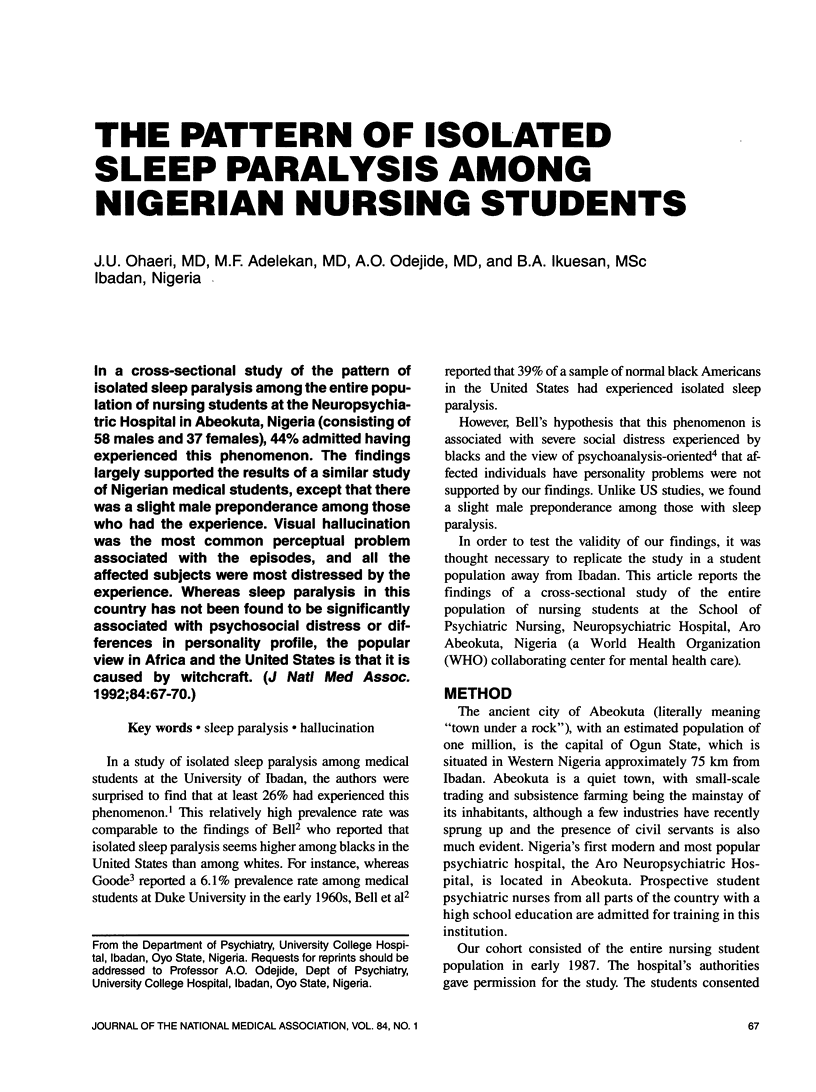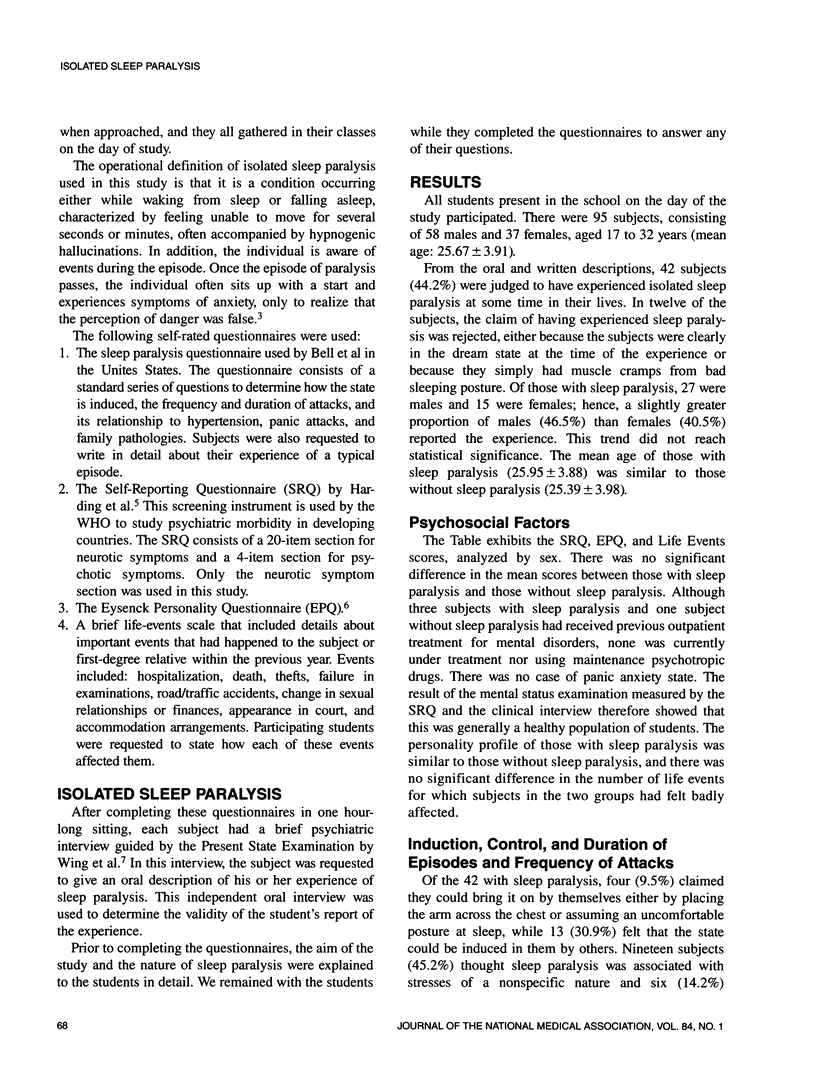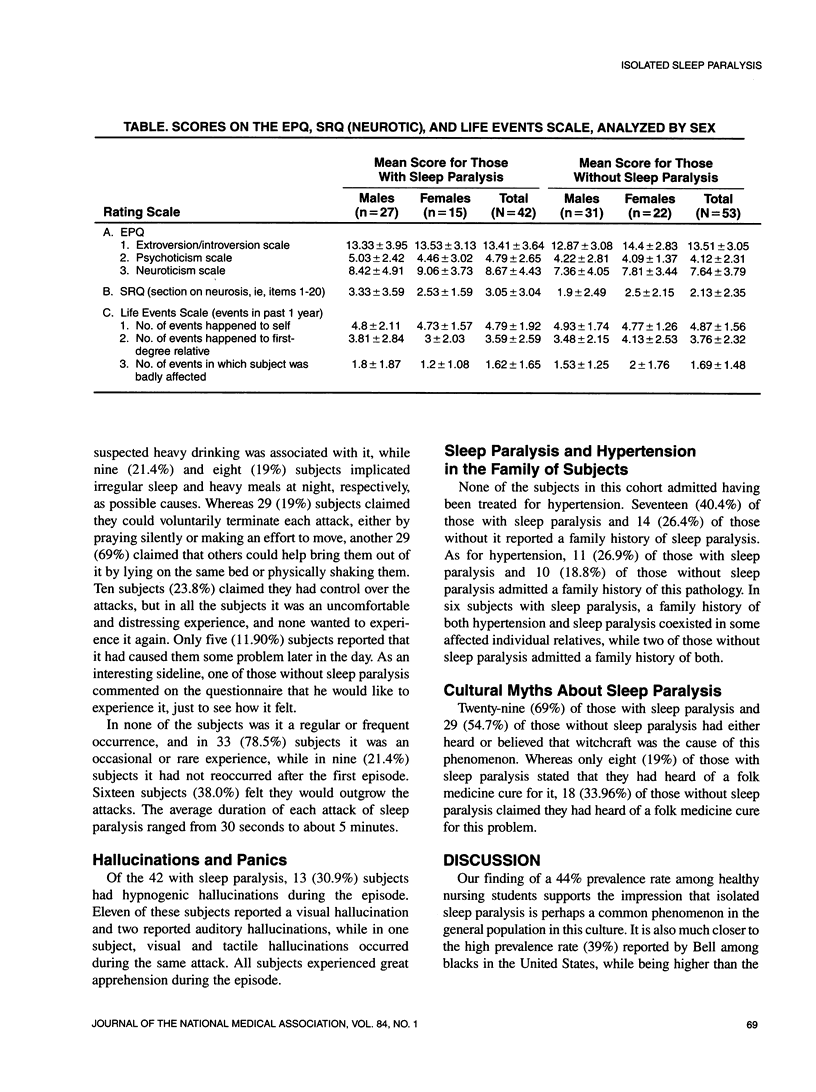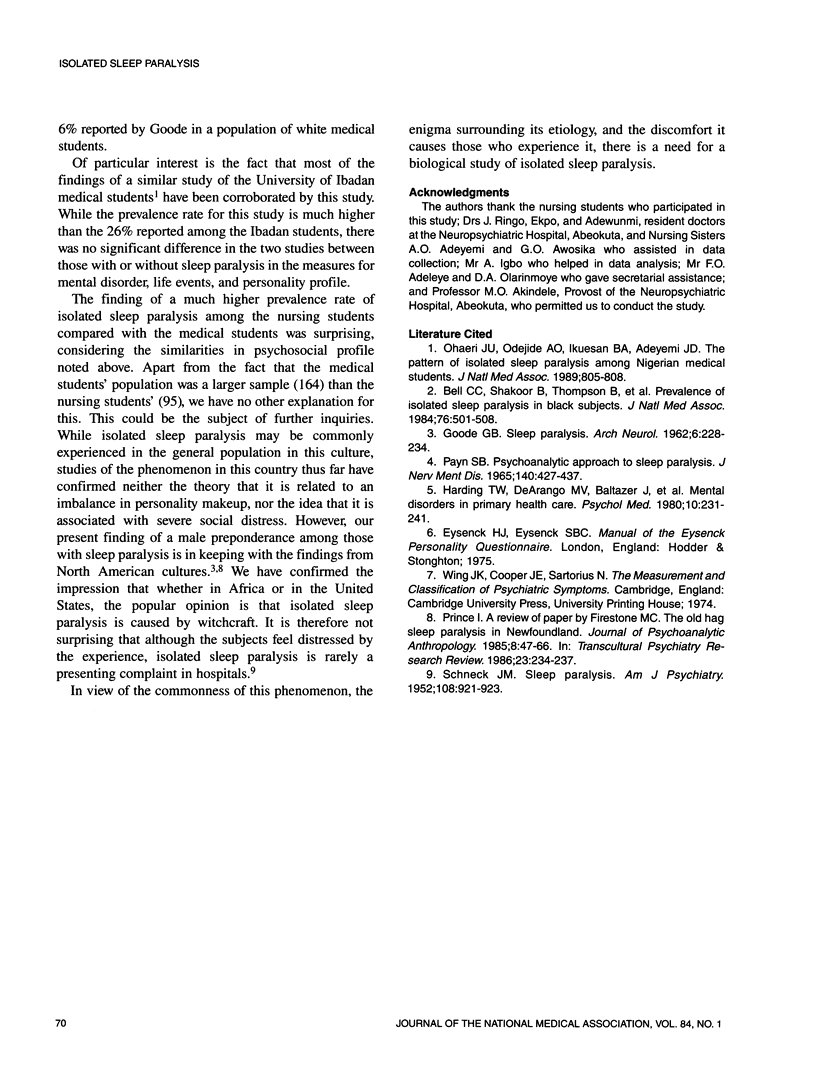Abstract
In a cross-sectional study of the pattern of isolated sleep paralysis among the entire population of nursing students at the Neuropsychiatric Hospital in Abeokuta, Nigeria (consisting of 58 males and 37 females), 44% admitted having experienced this phenomenon. The findings largely supported the results of a similar study of Nigerian medical students, except that there was a slight male preponderance among those who had the experience. Visual hallucination was the most common perceptual problem associated with the episodes, and all the affected subjects were most distressed by the experience. Whereas sleep paralysis in this country has not been found to be significantly associated with psychosocial distress or differences in personality profile, the popular view in Africa and the United States is that it is caused by witchcraft.
Full text
PDF



Selected References
These references are in PubMed. This may not be the complete list of references from this article.
- Harding T. W., de Arango M. V., Baltazar J., Climent C. E., Ibrahim H. H., Ladrido-Ignacio L., Murthy R. S., Wig N. N. Mental disorders in primary health care: a study of their frequency and diagnosis in four developing countries. Psychol Med. 1980 May;10(2):231–241. doi: 10.1017/s0033291700043993. [DOI] [PubMed] [Google Scholar]
- Ohaeri J. U., Odejide A. O., Ikuesan B. A., Adeyemi J. D. The pattern of isolated sleep paralysis among Nigerian medical students. J Natl Med Assoc. 1989 Jul;81(7):805–808. [PMC free article] [PubMed] [Google Scholar]
- Payn S. B. A psychoanalytic approach to sleep paralysis. Review and report of a case. J Nerv Ment Dis. 1965 Jun;140(6):427–433. doi: 10.1097/00005053-196506000-00005. [DOI] [PubMed] [Google Scholar]


